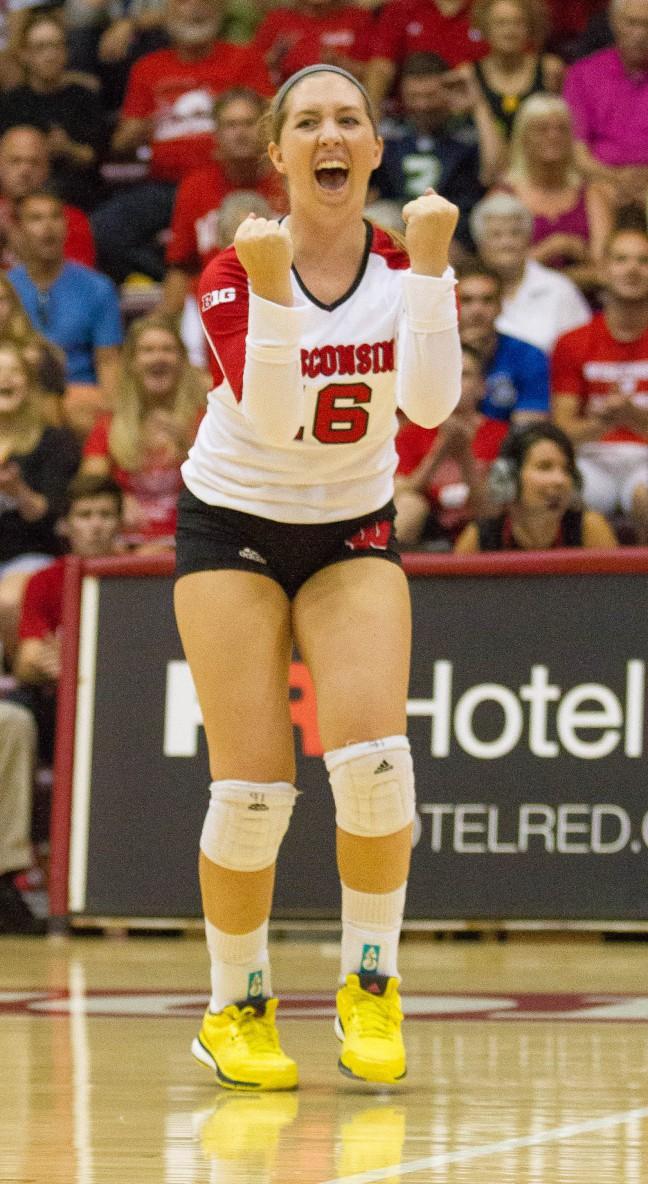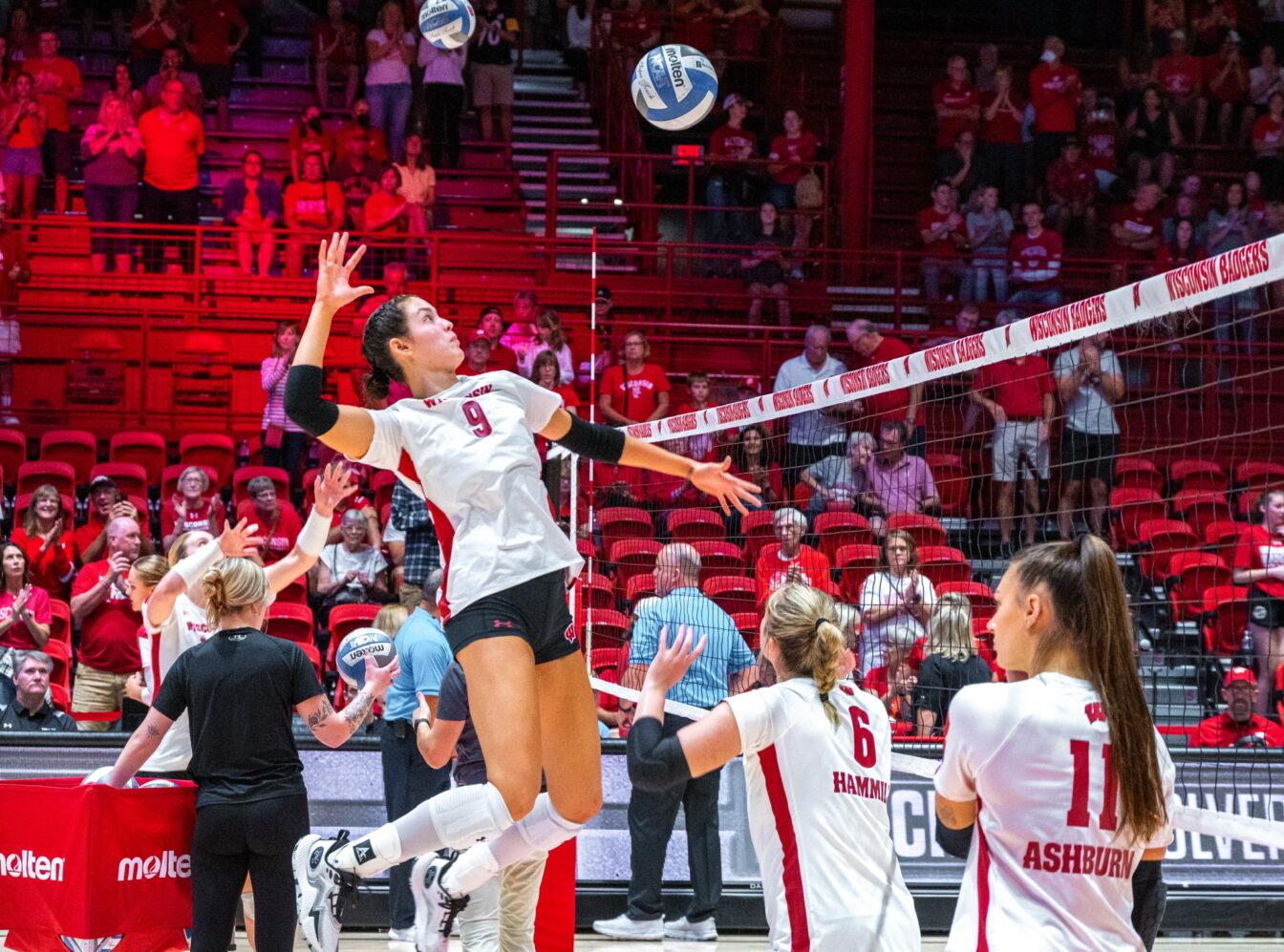Without a good defense, there is no offense.
Almost every offensive play in volleyball starts with the defense responding to an opponent’s serve or kill attempt. It’s that first contact by the defense that determines how effective the offense can be in their attempt to earn a point.
It can also be blatantly obvious when passing is not at its prime during a match, a job that starts with the back line.
“It’s one of the most isolated skills in the sport,” Wisconsin volleyball assistant coach Brittany Dildine said. “You can be pinpointed. When you are having a bad passing day, it is apparent to the team, it is apparent to the coaches, it is apparent to the fans because everything just falls apart.”
For the Wisconsin volleyball team, the defensive backline has been fueling a potent UW offense.
As far as its backcourt goes, Wisconsin has put up impressive numbers consistently all season, receiving serve close to 95 percent and averaging about 16 digs per set. Defensive specialists Caroline Workman and Deme Morales, as well as libero Taylor Morey, are primarily responsible for those numbers.
Morey has become a valuable asset to the Badgers when it comes to passing. She leads the Big Ten with 5.22 digs per set. She and her teammate Morales both receive their opponents’ serves with 96 percent accuracy. Workman has also passed above 90 percent with 25 digs so far this season.
“It’s our side of the court, it’s what I’m in charge of and I’m not going to let balls hit the floor,” Morey said. “I’m going to let my team get as many opportunities as I can to win the point.”
The precision, consistency and talent do not come easily to back row passers. Long hours of hard work and extra repetitions have made for long-term improvements over the course of the season for Wisconsin and its backcourt.
According to Dildine, the defensive specialists and liberos arrive 45 minutes early to practice, which adds up to more practice time for the backcourt than any other position on the Badger team.
A typical practice for a passer entails much more than mere passing repetitions. Dildine focuses training on the smaller, more intricate details such as core stability, footwork and vision-tracking that will benefit a passer’s technique and accuracy in an actual game-like situation.
One drill in particular that works to improve vision tracking involves Dildine filling a basket with different types of balls (basketballs, tennis balls, etc.) and tossing them at the players. The passer must say the type of ball she is catching out loud while doing her footwork.
Technique is only half of the requirement of a passer. The rest of it resides inside the mind of the player herself.
“Only so much of [passing] is skill, but the majority of it is mentality, and mental toughness, and being able to lock in and reset for every serve,” Workman said. “It can be one of the most frustrating parts of the game if you let it get in your head.”
Workman was out for the majority of the 2013-2014 season due to a stress fracture and some other health issues. She recovered during the spring of this year and said that she was back to practicing 100 percent in the summer to prepare for this season. Workman was more than ready to get back to work when this season came around.
“When I was out last year, one of the biggest things I missed was defense,” Workman said. “Getting a dig is one of the best feelings, because it’s kind of like a punch back in the face of the hitter.”
Each of these defenders expressed that the protection of the court is something that they are very passionate about. They have all had enough training and built enough confidence within them to trust their abilities, that instead of fearing the server on the other side of the net, they want that ball, they want that serve and they want that dig.
“You want every single ball,” Morales said. “You want everyone to come at you. When you get a groove for it, you build that confidence, and you’re not going to let stuff get past you. [It’s all about] protecting your team, your court and providing the best outcome for them.”










